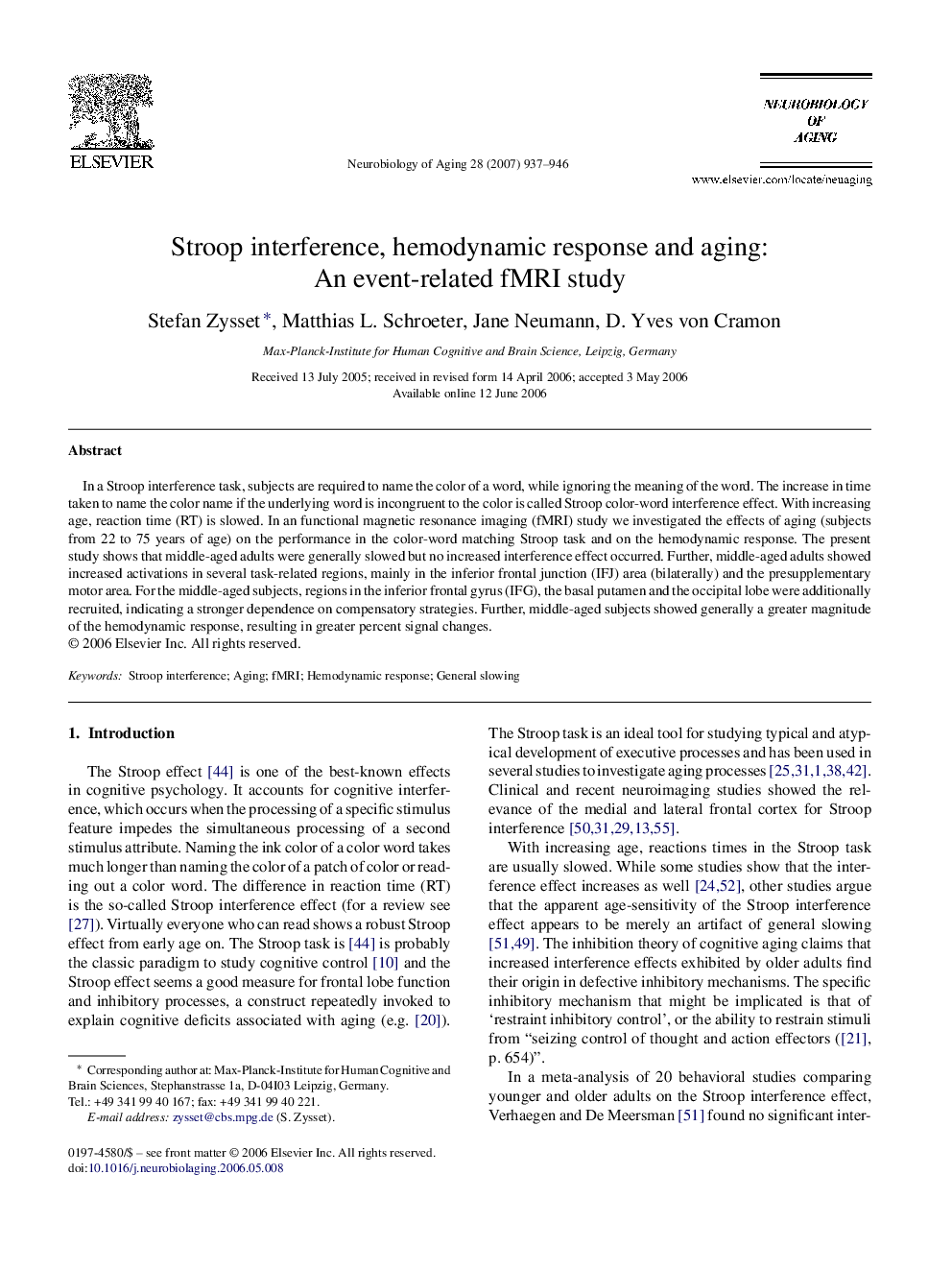| Article ID | Journal | Published Year | Pages | File Type |
|---|---|---|---|---|
| 331391 | Neurobiology of Aging | 2007 | 10 Pages |
In a Stroop interference task, subjects are required to name the color of a word, while ignoring the meaning of the word. The increase in time taken to name the color name if the underlying word is incongruent to the color is called Stroop color-word interference effect. With increasing age, reaction time (RT) is slowed. In an functional magnetic resonance imaging (fMRI) study we investigated the effects of aging (subjects from 22 to 75 years of age) on the performance in the color-word matching Stroop task and on the hemodynamic response. The present study shows that middle-aged adults were generally slowed but no increased interference effect occurred. Further, middle-aged adults showed increased activations in several task-related regions, mainly in the inferior frontal junction (IFJ) area (bilaterally) and the presupplementary motor area. For the middle-aged subjects, regions in the inferior frontal gyrus (IFG), the basal putamen and the occipital lobe were additionally recruited, indicating a stronger dependence on compensatory strategies. Further, middle-aged subjects showed generally a greater magnitude of the hemodynamic response, resulting in greater percent signal changes.
